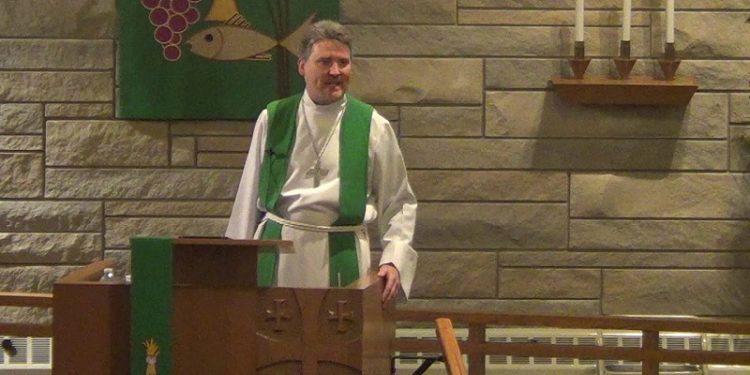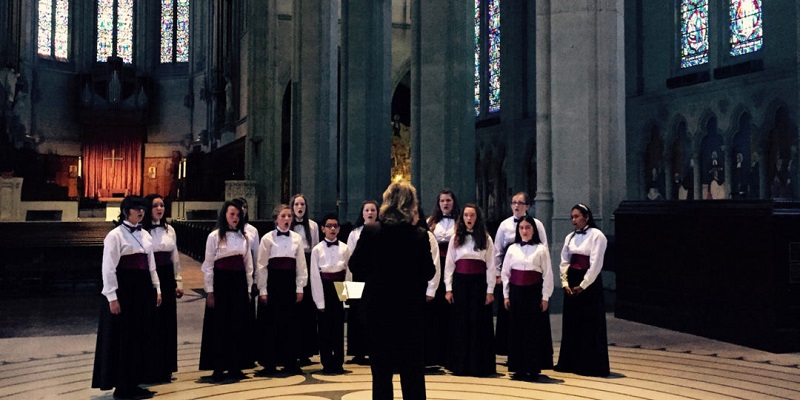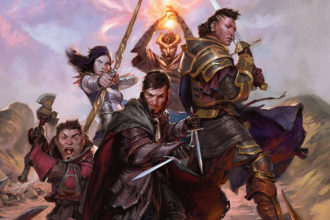Roleplaying Religions Right P2

For the most part, religions and belief systems are things we experience as a mostly passive participant in their development in our daily lives. Many of us are indoctrinated into a religion or belief system from an early age and unless we take the time to sit down and question what we believe or have an opportunity to take a “comparative religions” class, we stick with that selfsame beliefs. The reason for this may be as simple as “I grew up with this, therefore I am comfortable with it” to as complex as “I have done the research, the soul searching, as well as the thought and behavioral modifications this religion requires of its adherents and I feel that it is the truth.”
But what is a religion? Let’s use the following definition:
Religion may be defined as a cultural system of designated behaviors and practices, worldviews, texts, sanctified places, prophecies, ethics, or organizations, that relates humanity to supernatural, transcendental, or spiritual elements. They may or may not contain various elements ranging from the divine, sacred things, faith, a supernatural being or supernatural beings or transcendence. Religious practices may include rituals, sermons, commemoration or veneration (of deities), sacrifices, festivals, feasts, trances, initiations, funerary and matrimonial services, meditation, prayer, music, art, dance, public service, or other aspects of human culture. Religions have sacred histories and narratives, which may be preserved in sacred scriptures, and symbols and holy places, that aim mostly to give a meaning to life. Religions may contain symbolic stories, which are sometimes said by followers to be true, that have the side purpose of explaining the origin of life, the universe, and other things. Traditionally, faith, in addition to reason, has been considered a source of religious beliefs.
This time we’ll discuss music/ performances, sermons, and texts.
Music & Performances

There are many types of music and performances that may be used in association with religious services. In modern day religious services, there are such diverse music as rap, rock and roll, classic hymns, patriotic music, meditative music, classical music and more. Performances are varied too, including such types as puppet shows, drama, choral performances, and paint-dancing. In a sense even sermons and prayers could be considered a type of performance (but more about these later).
- Even atheists or agnostics in your game may be affected by the beauty of the music and performances.
- Due to the influence of nature in their daily lives, the music of the elves could sound like wind blowing through the trees, a babbling brook, or the sounds of nature as one drifts lazily downstream on a raft on a lazy summer day. Remember that elves are such long-lived creatures that their musicians may think nothing of perfecting a piece of music for 100 years or longer before being willing to let others listen to it. And if they are so inclined to put their talents towards religious purposes, they would spend even more time so that the piece is perfect as it could be.
- Dwarven performances would probably be a part of a dwarf’s everyday life. Because of the work they do (that is when they’re not adventuring) is so monotonous, there would be a pattern to their movements that give a natural beat, such as beating metal into the shape of weapons and armor and mining. This beat would be what allows them to do the same thing day in and day out and not go insane. Think of Disney’s classic “Hi Ho!” song in Snow White and the Seven Dwarves.
- Dragons, due to their long lives, may have musical tastes throughout many centuries and lands as traveling bards will often visit them for information they might have and will trade in music and stories. Even evil dragons may deign to be entertained without killing the bard afterwards if it suits their purposes.
- Halfling music celebrates the hearth and home.
- Orcish music has a “death metal” vibe to it, though with a lot more drums (as electric guitars weren’t invented yet).
- Genies might have music taste from throughout time and space (remember Robin Williams’ impressions… he could have been picking up people to imitate from the future who didn’t exist yet!)
- Performance may even be something as complex as the battle dancer, blade dancer, or dancing monk’s movements.
- Just like in real life, different regions may have different musical tastes and performances. They may even have different instruments, if they’re isolated.
Sermon
A sermon is an oration, lecture, or talk by a member of a religious institution or clergy. Sermons address a scriptural, theological, religious, or moral topic, usually expounding on a type of belief, law, or behavior within both past and present contexts. Elements of the sermon often include exposition, exhortation, and practical application. In fantasy games for the most part you’re probably not going to be writing an entire sermon for your party to listen to. Having said this, it might be useful to think about the themes a sermon might contain, as well as openings and closings for them. Growing up in a Lutheran church, a lot of sermons I heard over the years started with the words from the Apostle Paul “Grace, joy, and peace be yours from God our Father, and from our Lord and Savior, Jesus Christ, amen!” and when it ended with some sort of call to think about the words said and put them into daily practice in one’s life. Similarly, in your games, sermons may talk about the deity in question, why the audience should appreciate the deity more than (or at least as equally) other deities. There may be some mention of what it’s currently doing (if known). There may also be talk how their “side” is doing – for instance, if there’s a shakeup in the heavens, and which other god(s) are causing it. Maybe there’s a problem with the god – it’s sick, lost believers, or is under serious assault from the infernal realms, and thus needs support more than ever. Being that there are so many deities out there, each one will have different types of sermons, and typically no two would (or should) sound alike, unless they’re thematically similar… and even then, those similarities would be surface level, as the deities would probably be for different races. Consider these sermon openings/ closings as inspiration for your game:
- (opening) The Lord of Light sits enthroned in glory, bids you welcome to his presence. (closing) Go, spread the Light in the world around you, so you may be blessed.
- (opening) May the Darkness of our lord envelop you, hiding your deeds from the sun. (closing) May your deeds be forever hidden, your fingers quick, and your dagger sharp
- (opening) Nature is verdant in its growth, and she will protect you in her covering. (closing) Protect nature and she will protect you. Go forth and be her protector so she may be both your sword and shield.
- (opening) Justice seeks to punish the evildoer for his many crimes. While executing the cause of Justice, don’t let the path of injustice sway your path. (closing) Go! Make the world a just place for all.
Texts / Scripture

In the real-world texts as:
- the bible (Christianity)
- the Koran (Islam)
- the Book of Mormon (Mormonism)
- various Buddhist texts
- Bahai Faith texts
- Hindu texts
- Egyptian religion texts
among others are said to be “sealed.” What this means is that is no additions should be made to the scripture. In a fantasy world, due to the activities of the god(s) in question, the scriptures of these religions would be able to be constantly updated. Some of the questions to ask yourself when dealing with religious texts or scriptures in your game are:
- What are the myths surrounding the world’s creation? How did this particular deity play into it? Or is it a newcomer to the scene?
- What is the deity’s portfolio?See a (quasi) comprehensive list of known published deities here
- What does it promise its followers? How good is it at keeping its word?
- What type of text is it? Using the bible as an example, there’s sections of:
- Prophecy
- History
- Erotica
- Laws/ Morality
- Prayers & Songs
- Tales of miracles
- Tales of saints
- Letters
- Proverbs/ Sayings
- Is the text in question official or is it something like the Apocrypha whose authorship isn’t universally accepted?
- What are its powers? How does it use them?
- Who are the deity’s enemies? Why?
- What are the deity’s rules or laws? How does it enforce them?
- What do the scriptures say, if anything, about the afterlife?
- When does it take notice of its follower’s actions?
- How do the different fantasy races/ classes play into it?
- Elven scriptures may talk about the wonders of nature and their special place within it. On Athas (Dark Sun campaign setting), on the other hand, might talk about how the world was before magic started ruining it. Furthermore, elven scriptures might be written in High elf.
- Dwarven scriptures might talk about the secrets of stone working, gem cutting, or weapon and armor forging.
- Halfling scriptures might be filled with common-sense advice and proverbs.
- Dragon scriptures might be carved into stone on cave walls, and they need to travel to the cave to study them.
- Barbarians (due to their lack of literacy) have scriptures that are verbally passed down from one generation.
- Monk scriptures might tell of the eightfold path.
- Rogue scriptures might give details about adaptability for magical item use
- Fighter scriptures could tell secret sword strikes or defensive maneuvers.
- Warlock scriptures would tell of how to contact and create a contract with their ally from which they draw their powers.
- How does language figure into it? For instance, the Koran is said to be “official” only in Arabic. Also, in Catholicism, for many years the services were performed in Latin, which many of the congregants didn’t know. Maybe a good deity might insist that their followers learn to read and speak celestial, whereas an evil one might have infernal as its language of choice.
- How do others react to its message? Is it something that people are drawn to, or is it a hard teaching, but it’s how the world operates?
- Are there things in it that are controversial so that it would cause believers to gloss over them or try to explain them away?
- Are there some texts that are misunderstood that are used to support controversial or even wrong actions?
- Is there another message hidden in the text, something like the bible code?
- Can everyone understand it, or do they need to be brought up in the traditions to understand its nuances?
There are a variety of ways to use religion in your games. Music and performances, sermons and scriptures help ground your world with touchstones that we see in our everyday experiences. Use these ideas to help make religions more realistic in your game. Look for part 3 soon.




